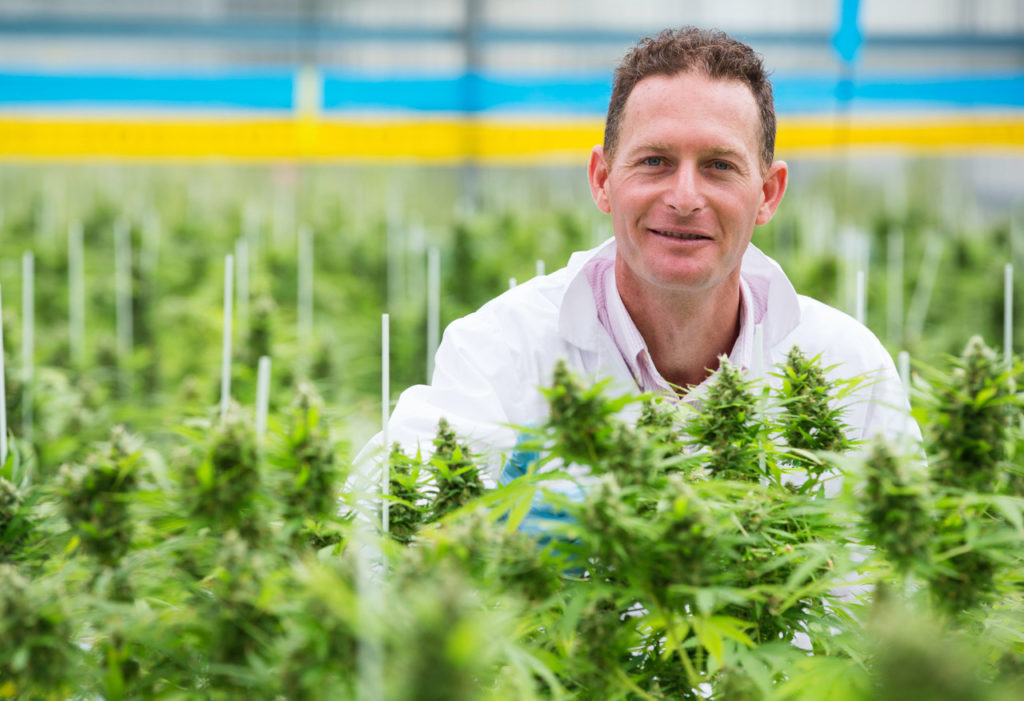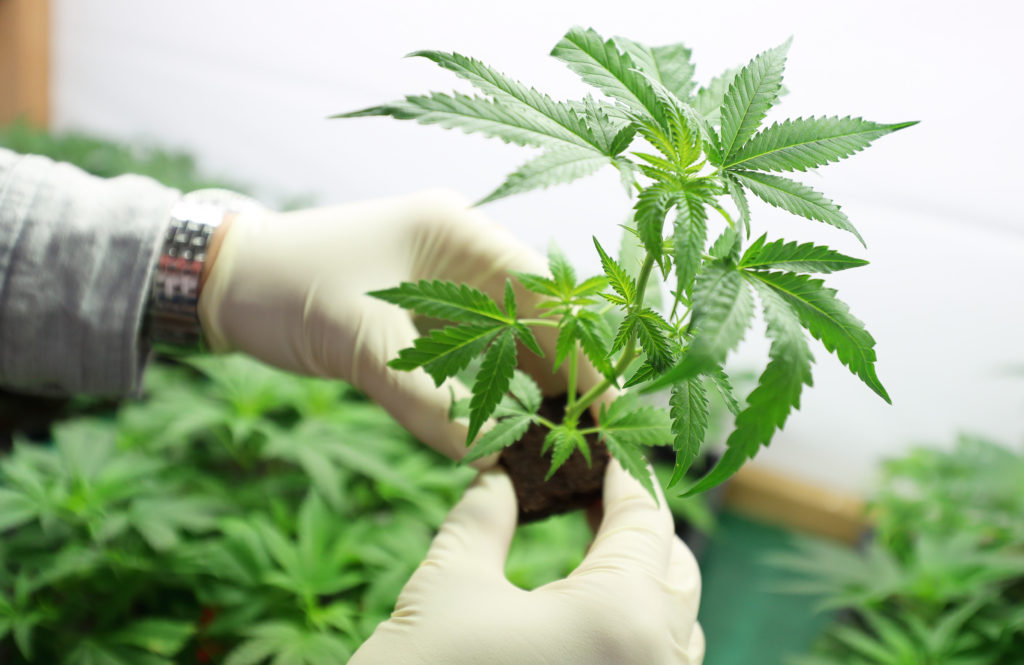A new dedicated medicinal cannabis nursery is being launched at UIC’s Symposium this weekend by Adam Benjamin, co-founder of one of Australia’s first cultivation businesses in 2017.
Standard Botanic will supply young clones, taken from the nursery’s maintained mother stock and raised from its own elite genetics, to licensed cultivators.
Benjamin said his cultivation experience inspired him to start the new venture.

He told Cannabiz: “I’ve lived and breathed the pains of starting a cultivation business over five years, from first seed imports through to products on the dispensary shelves.”
That experience helped put Standard Botanic on a mission to drive Australian cultivators to the forefront of premium flower supply.
“Premium flower is by far the most profitable crop to grow in all of agriculture,” said Benjamin. “So why are almost all products imported, despite six years and a multitude of cultivation licences being issued?”
“Sourcing the right plant genetics is the missing piece of the puzzle.”
Standard Botanic’s mother stock has been developed from seeds preserved over decades by the late Nevil Schoenmakers, one of the pioneers of cannabis genetics.
Benjamin added: “Cultivators have turned to the same few seed suppliers in Canada and the Netherlands, but the real question is ‘what are you getting, who do those suppliers turn to?’”
With only a handful of seeds of landrace strains remaining, Benjamin said Standard Botanic was in a privileged position based on his longstanding connection with Schoenmakers.
“The difference between elite genetics and widely offered genetics can’t be overstated,” he said. “At its extreme, it’s the difference between viability and failure given wholesale prices for run-of-the mill flower.
“In some cases, this has played out in public, with stories of abandoned cultivation operations or failure to deliver not uncommon. Then there’s profits — premium flower (wholesale) prices are a multiple of the price of ‘pedestrian quality’ flower (destined for the extraction market).”
“Sourcing the right plant genetics is the missing piece of the puzzle.”
ADAM BENJAMIN
“There are great genetics out there, but given the extreme difference in profitability, it’s small wonder they’re closely guarded.
“The usual process of acquiring seeds is a lottery — you might get a good payoff, but the odds are stacked against you. What’s worse, you only know the payoff after one-to-two years, all the while stacking up operating losses.”
Benjamin said these timeframes are the typical development cycle to acquire and import seeds, germinate, grow to flower, test, rinse and repeat in order to validate that the genetics are stable across generations.
And ultimately, from the scores of strains tested, build mother stock to commercial scale.
“Only then can the cultivator look forward to generating sufficient scale of cuttings, which will produce flowers for harvest around four months later — if all goes well,” he added.
Compounding this uncertainty, dialling in growing protocols is a challenge as all strains behave differently according to varying combinations of inputs and conditions.
“This is not a secret, some ultimately successful cultivators have publicly reported commercial failure of first crops while this process is settled in,” Benjamin said.
In contrast, building from its research facility where development of its mother stock has been underway for over a year, Standard Botanic is scaling up to deliver its customers thousands of young rooted clones each month, all derived from its elite genetics covering a variety of strains — differing profiles of cannabinoids, terpenes and flavonoids.
“Delivering young clones derived from our elite genetics gets cultivators to first harvest of premium flowers in under six months, saving enormous cash burn and de-risking development,” he said.

Standard Botanic offers a range of profiles from high-THC, low-CBD dominant cultivars at of varying potency levels, through balanced profiles, and high-CBD strains, including a hardy, high-yielding outdoor specialised CBD strain.
Benjamin added: “The key markers of potentially profitable genetics are dry flower yield per square metre of plants and for a given set of inputs (light, fertiliser and other options) and cannabinoid potency and profile.
“But that’s the starting point. Probably the most overlooked, but ultimately critical, factor distinguishing elite genetics is profile consistency across generations.”
Without that stability, patients looking for premium flower will turn away, he said, with consistency requirements for flower enshrined in regulations both here and overseas.
Standard Botanic has also developed optimised growing protocols for its strains for a variety of conditions, delivered using its cloud-based ‘Standard Grow Platform’.
“The platform will provide our cultivator customers with recommended combinations of inputs for all stages of development of the strains, for a variety of environmental and other conditions typical in cultivation operations,” explained Benjamin.
The input guidance is backed by a library of standard operating protocols, with ongoing updates.
Benjamin said the protocols are extremely granular, including recommended measurement systems and their calibration. The platform is designed to record numerous data measures over time, and will in future integrate with standard growing control systems.
The business model has been designed to share the risk with cultivators with clones provided under licence, and delivered securely across Australia. Standard Botanic charges what Benjamin described as “a very modest up-front fee for each strain, with the bulk of our reward coming from royalties”.
“So we share in our customer’s success. Our intention is that our relationships will be deep and long-term,” he added.
